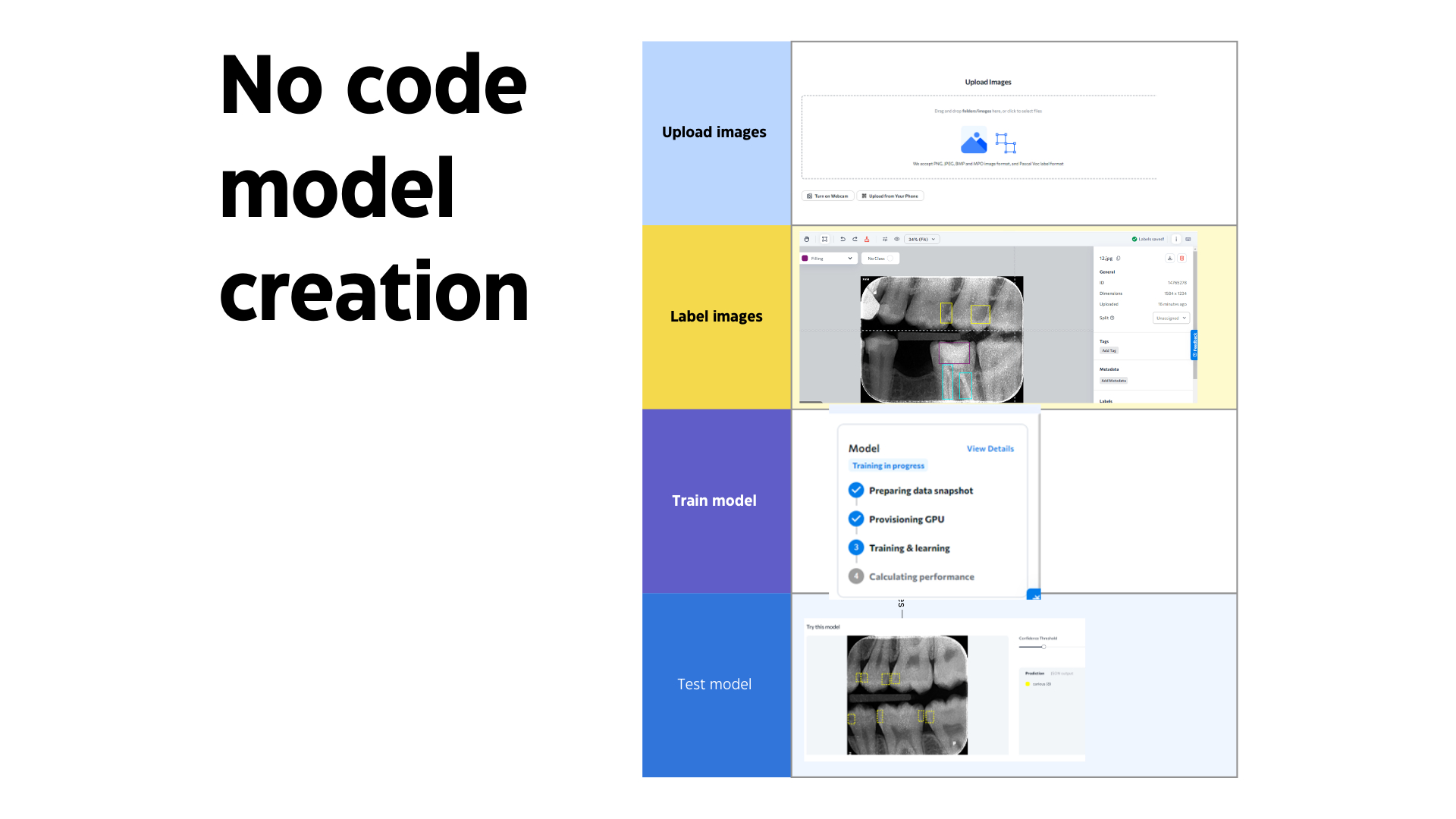IADR Abstract Archives
Leveraging Pretrained Computer Vision Models for Tailored Dental Applications
Objectives: This study aims to utilize a no-code computer vision platform to develop, train, and evaluate a model specifically designed to identify dental findings on bitewing radiographs. The research highlights the potential of democratizing Artificial Intelligence (AI), making it more accessible as a tool for creating tailored dental solutions in practice and research.
Methods: Fifty anonymized bitewing radiographs were selected for this study. A no-code AI model was developed using the no-code pre trained model, where dental anomalies such as carious lesions, root canal treatments (RCT), crowns, and fillings were precisely labeled. The annotation process was performed by one annotator under supervision of one expert, with a final review by an oral radiology specialist for validation. 70% of the radiographs were allocated for training, while the remaining 30% were reserved for testing. The model was trained for 60 epochs using a medium-size model provided by the platform. To improve predictive accuracy, data augmentation techniques, including horizontal and vertical flipping, were applied to the training dataset. The model’s performance was initially evaluated using the training data to verify accurate labeling before proceeding to the testing phase.
Results: The model achieved a performance accuracy of 92% on the training set, the f1 score showed a predictive performance of 77.2%. Dev training set, Sensitivity and specificity metrics were calculated to further evaluate the model's diagnostic accuracy. When compared to a traditional coded AI software, 93% of the results were consistent with those generated by the no-code pre trained model, demonstrating comparable performance.
Conclusions: The no-code computer vision platform demonstrated reliable accuracy in detecting dental anomalies, with minimal error. However, expanding the dataset is recommended to enhance this model's performance and increase confidence in its diagnostic capabilities.
Methods: Fifty anonymized bitewing radiographs were selected for this study. A no-code AI model was developed using the no-code pre trained model, where dental anomalies such as carious lesions, root canal treatments (RCT), crowns, and fillings were precisely labeled. The annotation process was performed by one annotator under supervision of one expert, with a final review by an oral radiology specialist for validation. 70% of the radiographs were allocated for training, while the remaining 30% were reserved for testing. The model was trained for 60 epochs using a medium-size model provided by the platform. To improve predictive accuracy, data augmentation techniques, including horizontal and vertical flipping, were applied to the training dataset. The model’s performance was initially evaluated using the training data to verify accurate labeling before proceeding to the testing phase.
Results: The model achieved a performance accuracy of 92% on the training set, the f1 score showed a predictive performance of 77.2%. Dev training set, Sensitivity and specificity metrics were calculated to further evaluate the model's diagnostic accuracy. When compared to a traditional coded AI software, 93% of the results were consistent with those generated by the no-code pre trained model, demonstrating comparable performance.
Conclusions: The no-code computer vision platform demonstrated reliable accuracy in detecting dental anomalies, with minimal error. However, expanding the dataset is recommended to enhance this model's performance and increase confidence in its diagnostic capabilities.

